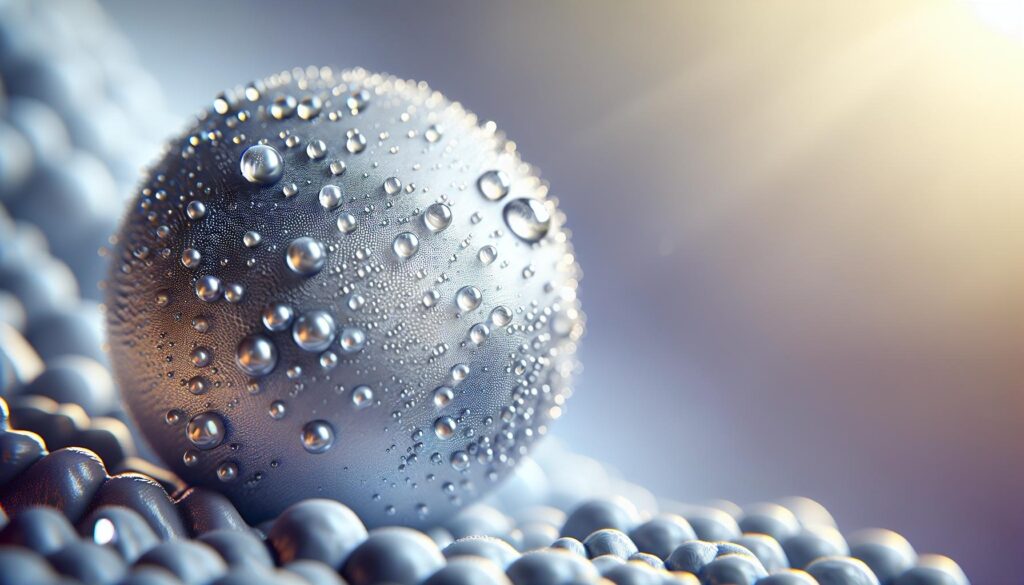The skin barrier plays a crucial role in overall skin health, acting as the first line of defense against environmental aggressors. When compromised, it can lead to various issues like dryness, irritation, and increased sensitivity. Understanding the healing process of the skin barrier is essential for anyone looking to restore their skin’s natural balance.
Healing time can vary significantly based on several factors, including the severity of the damage and individual skin types. While some may notice improvements within a few days, others might take weeks to achieve full recovery. This article delves into the factors that influence skin barrier healing and offers insights into effective care strategies to expedite the process.
How Long Does Skin Barrier Take to Heal
The skin barrier acts as the outermost layer of the skin, serving as a protective shield against environmental factors. Recognizing its composition and function is essential for effective skincare.
What Is The Skin Barrier?
The skin barrier, also known as the stratum corneum, consists of layers of dead skin cells embedded in lipids. These lipids include ceramides, cholesterol, and fatty acids, which work together to lock in moisture. A healthy skin barrier prevents transepidermal water loss (TEWL), shielding against pollutants, allergens, and pathogens.
Importance Of A Healthy Skin Barrier
A healthy skin barrier maintains skin hydration and prevents irritation. It supports skin resilience, aiding in the prevention of conditions like eczema, psoriasis, and acne. Additionally, it enhances the skin’s ability to heal by fostering an optimal environment for regeneration and repair, ensuring overall skin health.
Factors Affecting Healing Time

Several factors influence the time it takes for the skin barrier to heal. Understanding these factors can help tailor care strategies for optimal recovery.
Individual Skin Types
Individual skin types play a crucial role in healing time. Oily skin often heals faster due to natural moisture retention, while dry skin may experience prolonged healing due to lack of hydration. Sensitive skin types might face additional challenges, as they often react more severely to environmental irritants, which can complicate recovery. Additionally, conditions like eczema or psoriasis can hinder the healing process, necessitating specialized care.
Severity Of Damage
Severity of damage significantly impacts healing duration. Minor abrasions or irritations may heal within days, while deeper wounds or chronic conditions may take weeks or even months to recover fully. The complexity of skin issues, such as inflammation or infection, can further prolong the healing process. Proper assessment and management of damage severity can determine appropriate treatment plans.
Environmental Influences
Environmental influences also affect the skin barrier’s healing time. Climate factors, such as humidity levels and temperature, can either benefit or hinder the healing process. For instance, dry air can exacerbate skin dehydration, while humidity can promote faster healing. Additionally, exposure to pollutants, allergens, or harsh chemicals may irritate the skin and slow down recovery. Implementing protective measures against environmental stressors is essential for enhancing healing.
Typical Healing Timeframes
Healing timeframes for the skin barrier vary significantly based on the extent of damage. Understanding these timeframes helps in developing appropriate care strategies for recovery.
Mild Damage
Mild damage typically includes minor irritations, such as superficial abrasions or slight redness. Healing time for this type of damage ranges from 2 to 7 days. During this period, the skin may appear red or slightly dry but usually responds well to gentle moisturizers and basic care.
Moderate Damage
Moderate damage encompasses more noticeable irritations, like rashes or moderate redness. Healing time spans from 1 to 3 weeks. In this case, using specialized treatments, such as barrier-repair creams or hydrating serums, can accelerate recovery. Skin may experience flakiness during this healing phase.
Severe Damage
Severe damage involves deep wounds, chronic conditions, or extensive dermatitis. Healing time for severe damage can extend from several weeks to months. Treatments must include targeted interventions such as prescription medications or dermatologist-guided care. During recovery, skin may appear severely inflamed and require consistent moisturizing to prevent further complications.
Tips For Supporting Skin Barrier Healing
Supporting skin barrier healing requires a combination of effective skincare products and lifestyle adjustments. Implementing the right strategies can significantly enhance recovery speed and overall skin health.
Recommended Skincare Ingredients
Utilizing specific skincare ingredients boosts skin barrier restoration.
- Ceramides: Strengthen the skin barrier by replenishing lipids, preventing moisture loss.
- Cholesterol: Enhances lipid structure, aiding in moisture retention and skin repair.
- Fatty Acids: Nourish and support skin’s natural lipid barrier function for improved hydration.
- Hyaluronic Acid: Attracts moisture, helping to maintain hydration levels in the skin.
- Niacinamide: Stimulates collagen production, reducing inflammation and improving barrier function.
- Panthenol: Soothes and hydrates the skin while promoting effective healing.
Lifestyle Changes
Incorporating beneficial lifestyle changes supports the skin barrier healing process.
- Stay Hydrated: Drink water consistently to maintain internal hydration and skin moisture.
- Follow a Balanced Diet: Include antioxidants and healthy fats, such as omega-3 fatty acids from fish or nuts, which support skin health.
- Minimize Stress: Practice stress-reducing activities like meditation or yoga, as stress can exacerbate skin issues.
- Avoid Harsh Chemicals: Select gentle, fragrance-free products to prevent irritation and damage to the skin barrier.
- Limit Hot Showers: Opt for lukewarm water during bathing to prevent stripping natural oils from the skin.
- Protect Against UV Exposure: Use broad-spectrum sunscreen regularly to prevent further skin damage.
Role in Determining Recovery Time
Healing the skin barrier is a vital process that varies significantly among individuals. Factors like skin type damage severity and environmental conditions play a crucial role in determining recovery time. While some may see improvements in just a few days others might need weeks or even months for complete healing.
Adopting effective skincare practices and making thoughtful lifestyle choices can significantly enhance this process. By prioritizing hydration and incorporating barrier-supporting ingredients into daily routines individuals can foster a healthier skin environment. Understanding these dynamics empowers everyone to take proactive steps toward achieving optimal skin health and resilience.
